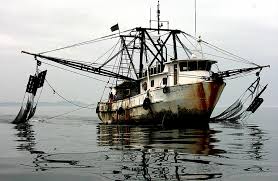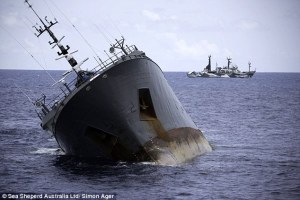The concept of illegal, unreported and unregulated (IUU) fishing is usually associated with arrangements for the conservation and management of marine living resources. Yet, in recent years, this expression has become increasingly familiar in maritime security circles, often used to refer to a broad spectrum of criminal activities at sea. IUU fishing is characterised by operational opacity, which can provide opportunity and cover for complex transnational crimes, such as the trafficking of drugs and weapons, people smuggling, and grievous abuses of labour and human rights (UNODC, 2011), as well as ancillary crimes such as fraud and tax evasion (OEDC, 2016). Widespread techniques to hide unlawful or destructive operational patterns may include engaging in ‘transhipment’, namely the practice of transferring catch and other products from one vessel to another (FAO, 1996). This operation, which is often performed unsupervised at sea, can facilitate the fraudulent concealment and redirection of fishery products as well as illicit objects, or smuggling of people (UNODC, 2011).

Credit: NOAA Fisheries
Weak regulatory frameworks can enable illegal and undesirable fishing activity, as well as at sea criminality, particularly when they lack surveillance and enforcement capability (see Doumboya et al, 2017). Further, surveillance and enforcement irregularities can be associated to instances of corruption (Sundström, 2012). Whilst the existence and implementation of an adequate regime with appropriate disclosures and infraction responses lies with flag, port, and coastal State authorities depending on context, it is becoming increasingly apparent that private actors may have a significant role in shaping security risks. The insurance industry has recently been identified as one of such actors by scholars, and they may have an important role to play in the development of appropriate risk management mechanisms concerning the prevention and ultimate eradication of IUU fishing and associated crimes. As Miller et al have indicated, the provision of certain insurance services to fishing vessels identified as having been involved in IUU fishing operations appears to be far from uncommon. The authors have suggested that IUU vessel owners and operators choose to purchase insurance, even in contexts when it is not obligatory, as an operational cost that protects them against the potentially prohibitive costs of accidental third party damage (Miller et al, 2016). Subsequent scholarship has pointed out that the value of insurance to IUU fishing operators might also be related to the need to satisfy the legal requirements for compulsory insurance that exist under some port utilisation frameworks (Soyer et al, 2018).
These studies are valuable in demonstrating the extent to which liability insurers may be facilitating criminality at sea, and the extent to which adapting underwriting practices might be desirable to enhance awareness of significant data. This may include disclosure of the identity of beneficial owners, as well as those with direct operational responsibility (Griggs and Lugten, 2007). Similarly important is the existence of permanent forms of vessel identification, such as numbers assigned by the International Maritime Organization (Miller and Sumaila, 2014). Awareness of the presence of monitoring devices is also advisable, since it is common for vessels engaging in IUU fishing to be permitted to operate without vessel monitoring systems (Detsis et al, 2012), or automatic identification systems (Robards et al, 2016). Unfortunately, current research into the insurance practices of IUU fishing vessels includes little insight into the operational synergies between IUU fishing operations and related patterns of criminality – an association that recent scholarship has increasingly highlighted (De Coning, 2016; Lindley et al, 2019; Chapsos and Hamilton, 2018). Given that there is evidence of elements that facilitate the combination of IUU fishing with transnational criminal activities involving diverse forms of smuggling and trafficking, it is important to establish the insurance patterns of vessels involved in the latter, in respect of which there is currently insufficient information. Such data would be useful in the design of due diligence strategies for the marine insurance sector with regard to the selectivity of underwriting and claims practices.
Editors’s Note – For further information regarding due diligence and risk assessment in respect of IUU fishing for the insurance industry, please see the guidelines issued by Oceana, UNEP Finance Initiative, and the Principles for Sustainable Insurance.
Editor’s Note – An earlier version of this post was first published at: GSDM Global.
Mercedes Rosello, April 2019


You must be logged in to post a comment.